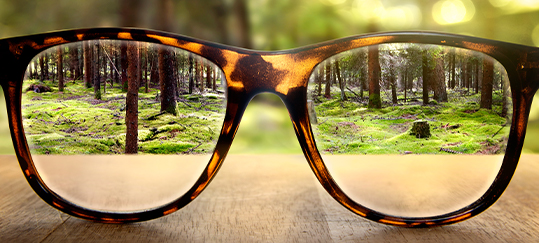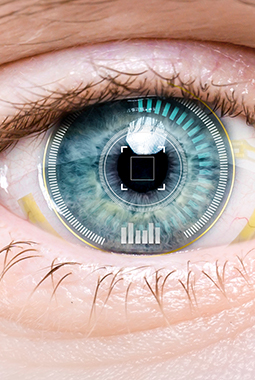Accidents Happen, Let Us Help
Eye injuries or trauma to the eye area can be stressful and frightening. Your eyesight is precious, and anything that might put it at risk needs to be dealt with immediately.
When an accident occurs, call our office right away. We will assess your situation and recommend next steps. We provide emergency care in office or you can call our main office line which is also a 24-hour emergency call line.
If our office is closed, you should proceed to your nearest hospital.
Request Appointment
Types of Eye Emergencies
Common eye emergencies we can treat include:
- Corneal abrasions (scratches on the eye’s surface)
- Foreign objects stuck in the eye
- Chemical splashes or burns
- Infections like conjunctivitis (pink eye)
- Flashes, floaters, or retinal detachment
- Eye diseases
Symptoms That Might Mean an Eye Emergency
While most eye emergencies involve noticeable symptoms or trauma, other eye emergencies are not as obvious. Any sudden changes to your vision should be considered an eye care emergency.
Sudden onset of any of the following symptoms may also indicate an emergency:
- Burning or stinging
- Pupils that differ in size
- Bulging eyes
- Severe eye pain
- Double vision
- Redness or itching
- Bruising or bleeding
- Severe itching
- Sudden headache
- Discharge from the eye
- Eyes not moving together
Call our office immediately should you experience any of these issues.
DOs & DON’Ts
In the event of an eye emergency, here are some DOs and DON’Ts to guide you:
DOs
Visit Our Location
Our location is across from the York Galleria, and plenty of parking is available out front. We look forward to seeing you and your family!
Our Address
- 2820 Whiteford Rd., Suite 6, York, PA 17402
Contact Information
- Phone: 717-470-0650
- Fax: 717-470-0655
- Email: [email protected]
Hours of Operation
- Monday: 8:00 AM – 5:00 PM
- Tuesday: 7:00 AM – 5:00 PM
- Wednesday: 8:00 AM – 4:00 PM
- Thursday: 8:00 AM – 6:00 PM
- Friday: 7:00 AM – 3:00 PM
- Saturday: Closed
- Sunday: Closed
Our Brands








Our Google Reviews
Our Blogs
What Is Heterochromia?
Vision TipsMost of us notice a person’s eye color almost immediately when we meet them. A striking pair of eyes can make a deep impression, and what could be more striking than a pair of eyes that don’t match? In scientific terms, that’s heterochromia, a phenomenon fairly common in cats and dogs but much rarer in […]
Spotlight: Age-Related Macular Degeneration
Vision TipsAge-related macular degeneration is a leading cause of permanent vision loss for people over the age of fifty. Age-related macular degeneration (AMD) is the slow loss of central vision due to the deterioration of the macula, the part of the retina with the highest concentration of photoreceptor cells and the part that gives us our […]
Tips on Maintaining Healthy Eyesight
Vision TipsAn underrated ingredient of a good quality of life is healthy eyesight. As many as one in six adults struggle with sight-threatening eye conditions and far more than that live with some level of vision loss as they get older. Age is a risk factor for many of the major causes of blindness, including glaucoma, […]
What Is Heterochromia?

Most of us notice a person’s eye color almost immediately when we meet them. A striking pair of eyes can make a deep impression, and what could be more striking than a pair of eyes that don’t match? In scientific terms, that’s heterochromia, a phenomenon fairly common in cats and dogs but much rarer in […]
Spotlight: Age-Related Macular Degeneration

Age-related macular degeneration is a leading cause of permanent vision loss for people over the age of fifty. Age-related macular degeneration (AMD) is the slow loss of central vision due to the deterioration of the macula, the part of the retina with the highest concentration of photoreceptor cells and the part that gives us our […]
Tips on Maintaining Healthy Eyesight

An underrated ingredient of a good quality of life is healthy eyesight. As many as one in six adults struggle with sight-threatening eye conditions and far more than that live with some level of vision loss as they get older. Age is a risk factor for many of the major causes of blindness, including glaucoma, […]










